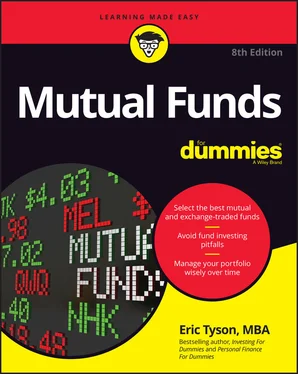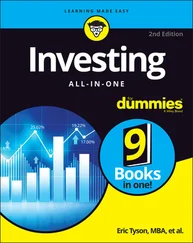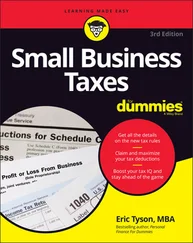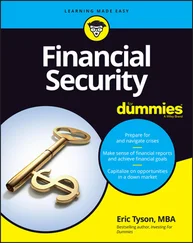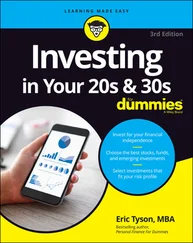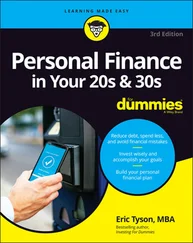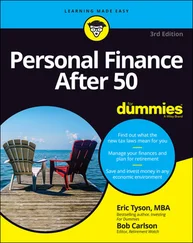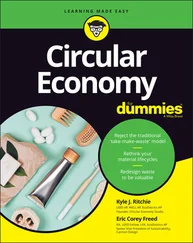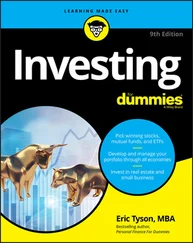Eric Tyson - Mutual Funds For Dummies
Здесь есть возможность читать онлайн «Eric Tyson - Mutual Funds For Dummies» — ознакомительный отрывок электронной книги совершенно бесплатно, а после прочтения отрывка купить полную версию. В некоторых случаях можно слушать аудио, скачать через торрент в формате fb2 и присутствует краткое содержание. Жанр: unrecognised, на английском языке. Описание произведения, (предисловие) а так же отзывы посетителей доступны на портале библиотеки ЛибКат.
- Название:Mutual Funds For Dummies
- Автор:
- Жанр:
- Год:неизвестен
- ISBN:нет данных
- Рейтинг книги:3 / 5. Голосов: 1
-
Избранное:Добавить в избранное
- Отзывы:
-
Ваша оценка:
- 60
- 1
- 2
- 3
- 4
- 5
Mutual Funds For Dummies: краткое содержание, описание и аннотация
Предлагаем к чтению аннотацию, описание, краткое содержание или предисловие (зависит от того, что написал сам автор книги «Mutual Funds For Dummies»). Если вы не нашли необходимую информацию о книге — напишите в комментариях, мы постараемся отыскать её.
Mutual Funds For Dummies
Mutual Funds For Dummies
Mutual Funds For Dummies — читать онлайн ознакомительный отрывок
Ниже представлен текст книги, разбитый по страницам. Система сохранения места последней прочитанной страницы, позволяет с удобством читать онлайн бесплатно книгу «Mutual Funds For Dummies», без необходимости каждый раз заново искать на чём Вы остановились. Поставьте закладку, и сможете в любой момент перейти на страницу, на которой закончили чтение.
Интервал:
Закладка:
Watch out for these …
No doubt you hear critics in the investment world state their case for why you should shun funds. Not surprisingly, the most vocal critics are those who compete with fund companies.
 You can easily overcome the common criticisms raised about fund investing if you do your homework and buy the better available mutual funds and exchange-traded funds, which I show you how to do in this book. Make sure that you consider and accommodate these factors before you invest in any fund:
You can easily overcome the common criticisms raised about fund investing if you do your homework and buy the better available mutual funds and exchange-traded funds, which I show you how to do in this book. Make sure that you consider and accommodate these factors before you invest in any fund:
Volatility of your investment balance: When you invest in funds that hold stocks and/or bonds, the value of your funds fluctuates with the general fluctuations in those securities markets. These fluctuations don’t happen if you invest in a bank certificate of deposit (CD) or a fixed insurance annuity that pays a set rate of interest yearly. With CDs or annuities, you get a statement every so often that shows steady — but slow — growth in your account value. You never get any great news, but you never get any bad news either (unless your insurer or bank fails, which could happen).Over the long haul, if you invest in solid funds — ones that are efficiently and competently managed — you should earn a better rate of return than you would with bank and insurance accounts. And if you invest in stock funds, you’ll be more likely to keep well ahead of the double bite of inflation and taxes. If you panic and rush to sell when the market value of your fund shares drops (instead of holding on and possibly taking advantage of the buying opportunity), then maybe you’re not cut out for funds. Stock fund investors who joined the panic taking place in late 2008 and early 2009 and sold got out at fire-sale prices and missed out on an enormous rebound that took place beginning in early 2009. The same scenario played out in early 2020 as stock prices dropped sharply and investors who then sold soon regretted doing so. Take the time to read and internalize the investment lessons in this book, and you’ll soon be an honors graduate from my Fund Investing University!
Mystery (risky) investments: Some funds (not those that I recommend) have betrayed their investors’ trust by taking unnecessary risks by investing in volatile financial instruments such as futures and options (also known as derivatives ). Because these instruments are basically short-term bets on the direction of specific security prices (see Chapter 1), they’re very risky when not properly used by a fund. If a fund discloses in its prospectus that it uses derivatives, look to see whether the derivatives are used only for hedging purposes to reduce risk instead of as speculation on stock and bond price movements, which would increase risk.
Investments that charge fees that are too darn high: Not all funds are created equal. Some charge extremely high annual operating expenses that put a real drag on returns. (Again, you won’t find such funds on my recommended lists in this book.) I talk more about expense ratios and how to find great funds with low expenses in Chapter 7.
Taxable distributions: The taxable distributions that funds produce can also be a negative. When fund managers sell a security at a profit, the fund must distribute that profit to shareholders in the fund (dividends are also passed through). For funds held outside tax-sheltered retirement accounts, these distributions are taxable. I fill you in on taxes on funds in Chapter 10. Some people — especially brokers and self-anointed gurus who advocate investing in individual securities — argue that taxes on fund distributions are a problem big enough to justify the avoidance of funds altogether, especially for higher-tax-bracket investors. They don’t have to be. If you’re concerned about the money you’re investing outside of tax-sheltered retirement accounts, don’t worry — I have a solution: See my recommended tax-friendly funds in Chapters 11through 13.
Chapter 3
Funding Your Goals and Dreams
IN THIS CHAPTER
 Covering your bases before investing
Covering your bases before investing
 Meeting your goals with the help of mutual funds and exchange-traded funds
Meeting your goals with the help of mutual funds and exchange-traded funds
In this chapter, I explain how to fit mutual funds and exchange-traded funds into a thoughtful personal financial plan so the funds you invest in and the other personal finance decisions you make help you achieve your goals and dreams.
 One thing to keep in mind before you dive in: Don’t become so obsessed with making, saving, and investing money that you neglect what money can’t buy: your health, friends, family, and exploration of career options and hobbies.
One thing to keep in mind before you dive in: Don’t become so obsessed with making, saving, and investing money that you neglect what money can’t buy: your health, friends, family, and exploration of career options and hobbies.
Acting Before Researching: The Story of Justine and Max
Justine and Max, both in their 20s, recently married and excited about planning their life together, heard about a free financial-planning seminar taking place at a local hotel. A financial planner taught the seminar. One of his points was, “If you want to retire by the age of 65, you need to save at least 12 percent of your income every year between now and retirement … the longer you wait to start saving, the more painful it’ll be.”
For the couple, the seminar was a wake-up call. On the drive home, they couldn’t stop thinking and talking about their finances and their future. Justine and Max had big plans: They wanted to buy a home, to send the not-yet-born kids to college, and to retire by age 65. And so it was resolved: A serious investment program must begin right away. Tomorrow, they’d fill out two applications for fund companies that the financial planner had distributed to them.
Within a week, they’d set up accounts in five different funds at two firms. No more paltry-return bank savings accounts — the funds they chose had been returning 10 or more percent per year! Unlike most of their 20-something friends who didn’t own funds or understand what funds were, they believed they were well on their way to realizing their dreams.
 Although I have to admire Justine and Max’s initiative (that’s often the biggest hurdle to starting an investment program), unfortunately they made numerous mistakes by investing in this fashion. The funds themselves weren’t poor choices — in fact, the funds they selected were solid: Each had competent managers, good historic performance, and reasonable fees. Here are some of the mistakes they made:
Although I have to admire Justine and Max’s initiative (that’s often the biggest hurdle to starting an investment program), unfortunately they made numerous mistakes by investing in this fashion. The funds themselves weren’t poor choices — in fact, the funds they selected were solid: Each had competent managers, good historic performance, and reasonable fees. Here are some of the mistakes they made:
They completely neglected investing in their employers’ retirement savings plans. They missed out on making tax-deductible contributions. By investing in mutual funds outside of their employers’ plans, they received no tax breaks.
They were steered into funds that didn’t fit their goals. They ended up with bond funds, which were okay funds as far as bond funds go. But bond funds are designed to produce current income, not growth. Justine and Max, looking to a retirement decades away, were trying to save and grow their money, not produce more current income which they didn’t need because they were working and earning money.
To add tax insult to injury, the income generated by their bond funds was fully taxable because the funds were held outside of tax-sheltered retirement accounts. The last thing Justine and Max needed was more taxable income, not because they were rolling in money — neither Justine nor Max had a high salary — but because, as a two-income couple, they already paid significant taxes.
Читать дальшеИнтервал:
Закладка:
Похожие книги на «Mutual Funds For Dummies»
Представляем Вашему вниманию похожие книги на «Mutual Funds For Dummies» списком для выбора. Мы отобрали схожую по названию и смыслу литературу в надежде предоставить читателям больше вариантов отыскать новые, интересные, ещё непрочитанные произведения.
Обсуждение, отзывы о книге «Mutual Funds For Dummies» и просто собственные мнения читателей. Оставьте ваши комментарии, напишите, что Вы думаете о произведении, его смысле или главных героях. Укажите что конкретно понравилось, а что нет, и почему Вы так считаете.
